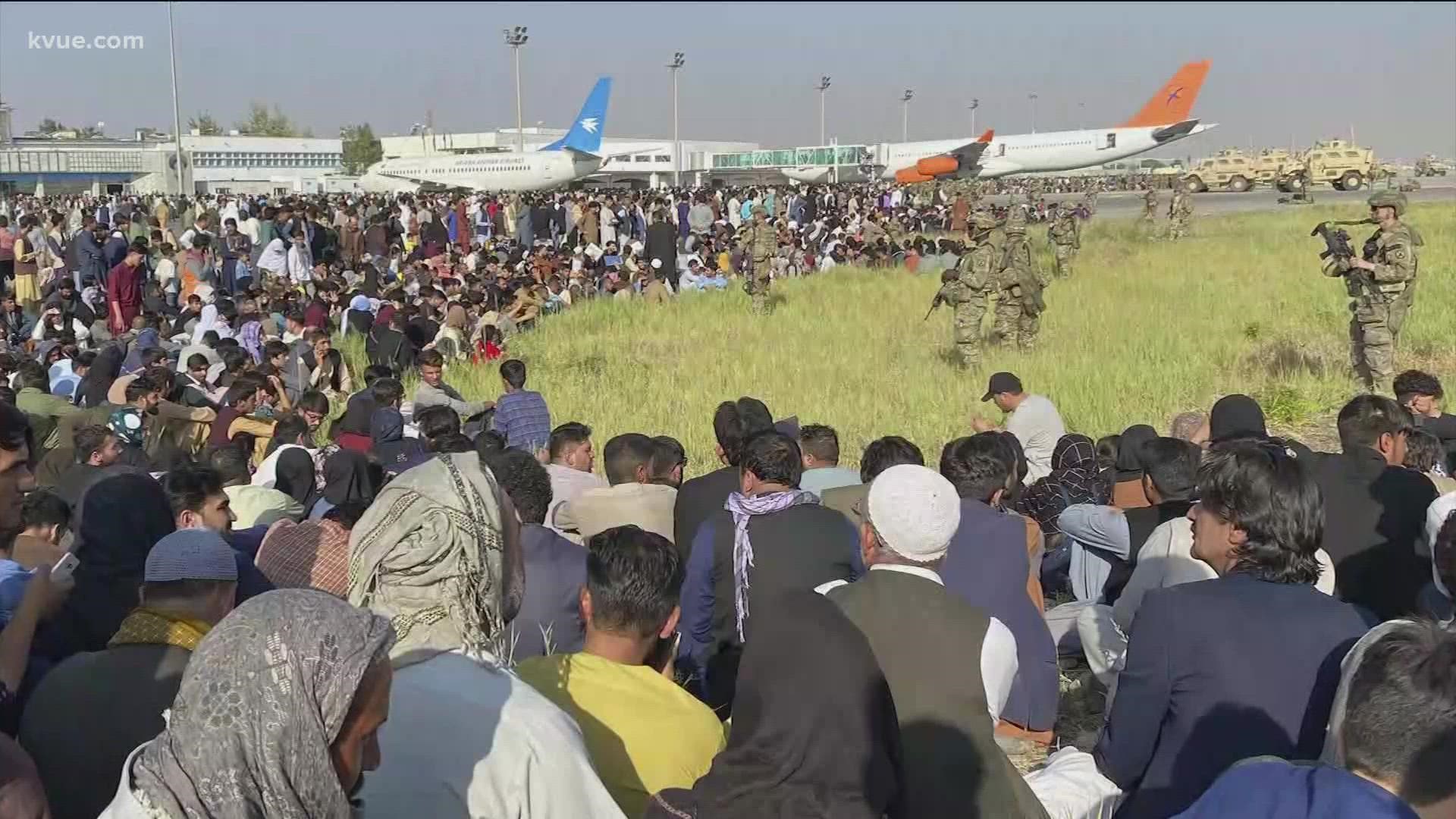AUSTIN, Texas — More than a month since the Biden Administration pulled the U.S. military out of Afghanistan, families of refugees are still trying to find their way out.
"I just got my visa and I cried a lot," Muhammad Javed Aryaan said. "I just got my brother out of Afghanistan. Right now, he's in Washington, D.C., so he will join me within a week or maybe in 10 days."
Aryaan helped the U.S. military for three years in Afghanistan. He came to the U.S. back in July. He lives alone.
"I don't have my father. I don't have my mom. I don't have my sisters. I live alone here," Aryaan said. "In Afghanistan, while you were going to work or while you were coming back home from work, your life is not guaranteed."
Because Aryaan helped American troops, he was afraid somebody would tell Taliban forces. Even though he has since left his home country, his father still faces those threats.
"Everybody is telling him, like, 'How is your son and the United States?' They are not asking about, 'How is your son?' But they're telling them that, 'We know that your son was working for U.S. Army and we can inform the bad guys,'" Aryaan said. "He's more than 80 years old and he cannot live in that environment. We have Taliban over there."
When Aryaan first came to the U.S., he knew almost nobody. Finding himself in Austin, he had to get his bearings.
"When I first got here, it was very tough to me. Like, the environment was new for me and I didn't know anyone here," Aryaan said. "I just got one friend. He helped me a lot. Things were new for me, but I got used to it slowly. I got a job here. I'm comfortable right now. I don't see any more danger."
Aryaan and other refugees like him can find help from organizations like CARE-Austin, a nonprofit helping refugees start a new life in the Texas capital.
"I'm single-mindedly focused on one thing: What do they need? How can I help them?" Tina Weinberger, the founder, said.
Weinberger does not have a staff, just volunteers helping her help refugees coming to the U.S. for the first time.
"To be honest, the real thing we do is we give them an American friend. We give them somebody who they can call if they're confused about something," Weinberger said.
Weinberger added even though her nonprofit is a small one, her volunteers try to help where they can: providing cooking supplies, clothes, toys, whatever a family needs to feel at home.
She feels she can relate to refugees starting a new home in America, because her parents did the same. Her father escaped Austria in 1939 before the Nazis took over, and her mother survived the Holocaust.
"When I talk to refugees, I just see my mother. Yeah, they're a different language, different country, doesn't matter. They are still people who have just been wrenched out of everything that was familiar to them, everybody who cared about them. And now they're literally strangers in a strange land," Weinberger said.
While Aryaan feels safe for the first time in years, he still does not trust the Taliban to be "different" than they were when they were in power in the early 2000s.
"These people are not trustable," Aryaan said. "I'm an Afghan person, but I'm ashamed to tell you that these are Muslims, but they are not real Muslims. Real Muslim does not kill innocent people like that. Don't trust them. They are not trustable. Don't you ever ever go to Afghanistan. They will kill you."
PEOPLE ARE ALSO READING:

